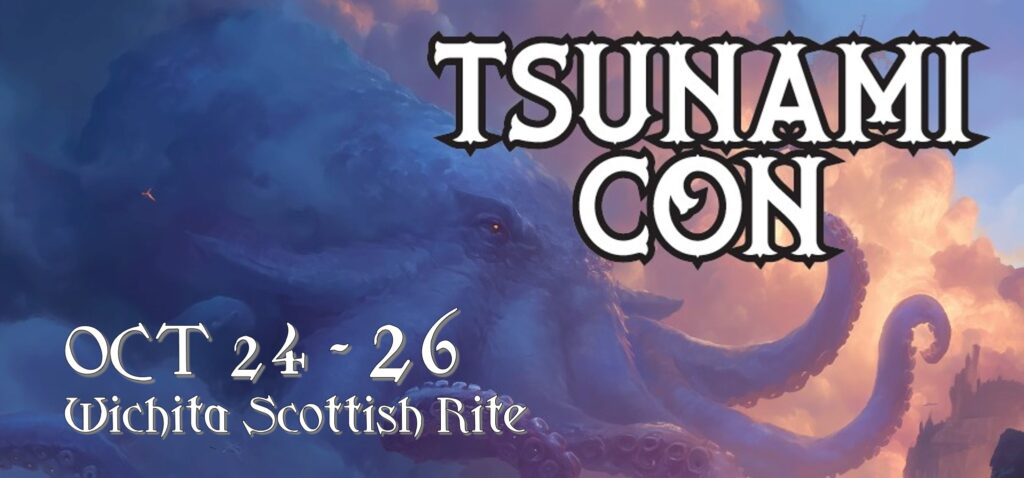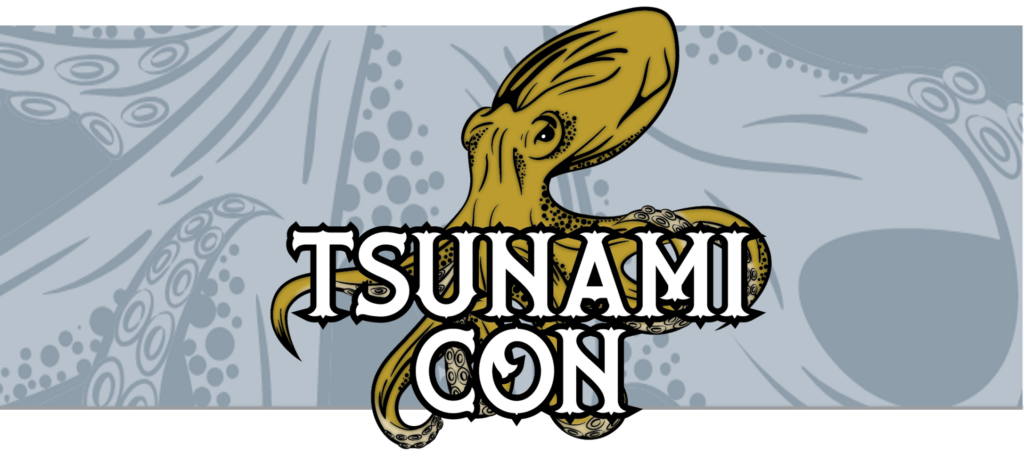 I run into this question a lot. The confusion is understandable. We’ve been doing this event for years… shouldn’t we be past the crowdfunding phase by now? Can’t we just invest in our product and plan ahead like a normal business? Do we even know how to run a business?
I run into this question a lot. The confusion is understandable. We’ve been doing this event for years… shouldn’t we be past the crowdfunding phase by now? Can’t we just invest in our product and plan ahead like a normal business? Do we even know how to run a business?
I’ve been advised on more than one occasion that business collaborators may have less confidence in an event that can’t even rely on its own budget. As one friend phrased it recently… for people on the outside, the “less they see of the back end, the better.” I understand this sentiment, and how it may look questionable from the outside. And I don’t dismiss it out of hand; whenever this question arises, I look at it from every angle. I take it seriously, and I consider the variables that make up TsunamiCon.
Without throwing actual numbers out there (which can be downright frightening, if you’ve never run a business), I’ve focused a lot on transparency over the years. I feel that this important for several reasons:
TsunamiCon is a community-driven event. And to be clear, that means that we rely 1000% on the community to get involved, or we don’t really have much of an event. As a game con director, I am a facilitator. I funnel a whole lot of money into securing a venue, managing logistics, promoting the event, and creating value added where I can. My entire staff of about a half dozen unpaid managers and often a dozen or so volunteers isn’t really enough to even manage that much without bending the laws of time and space, but we do our best. Without Game Masters to run games and events, exhibitors interested in purchasing space in the Marketplace, and gamers excited to spend the weekend engaged in their favorite hobby, the business collapses under its own weight. And most small convention owners will tell you that it only takes one “off year” to kill the convention entirely.
Which leads me to the next thought: Wichita is a tough market. It isn’t uncommon for us to have no idea whether the convention has paid for itself in any given year until the last day of the con. You might think I’m just poor with managing finances or don’t know what I’m doing, but let me lay that idea to rest: I’ve been managing this event in this market for 12 years. Before TsunamiCon, I spent 15 years managing and organizing all kinds of events – from home & leisure shows to rock concerts. I have an MBA, and I’m working on a Masters in Accounting, and my board are all business professionals. I have worked in management roles for media organizations, retailers, and financial institutions. I’m not actually much of a salesman, as it turns out, but I know a lot about administration, promotion, and logistics.
I remind myself of these things on the regular, but TsunamiCon is not a fluid business entity. We launched our very first Kickstarter in 2014 to fund our first event, because we started with no capital investment and wanted to see if it was possible. And it worked. Predictably, it soaked up every penny (and then some), but my team took the lessons provided by the first and did it again. And again. There were a couple years in there where we tried it without a Kickstarter campaign, hoping that with the momentum we had earned early ticket sales and sponsorships would give us the cash flow we needed… and that didn’t work so well.
According to our current projections, this year’s convention is going to cost us all told around $16K, more than half of which the venue needs up front. With more than 60% of ticket sales happening on site most years, that doesn’t work. And some of those are variable costs, of course, like merchandise and food for the lounge. This year I was approached by a volunteer who is actively selling to the local market – and if you talk to James G., be sure to let him know how much you appreciate it! – giving us a shot at picking up new sponsors (or old returning sponsors), and I’m excited at the potential. And while enough sponsorships could help mitigate those upfront costs, it’s all these variables working together that make a con.
So back to the initial question: Why KICKstarter?
- Confidence in our Budget. I know what kind of money we need in hand to proceed, and I know what benchmarks I need to reach by certain dates. If I know I can cover the cost of the venue before the 90-day mark, for example, I can spend more money on marketing, promotional materials, and features – all of which require planning. Otherwise, I have to keep the investments to a minimum to ensure we make what we need in time for the event.
- Building our Community. Kickstarter isn’t just a fundraising site, it’s a social network. We show systemic annual growth in our base built off of those who find us on the platform. I hear from new people every year. Our core community is aggressive with engagement, liking and sharing everything on the regular, but we’ve largely saturated that bubble and rely on bringing new eyes to the event as costs continue to climb every year. Additionally, it isn’t uncommon for us to find silent donors and community supporters who just want events like ours to succeed.
- Tangible Investment. The high visibility of a crowdfunding campaign provides our community with confidence that the event is, in fact, happening. Admittedly, numerous patrons are uninterested in using tools like Kickstarter, but we always have traditional sales via our own website available after the campaign. Attendees who see us running the campaign know that the event is actually happening. Note: This did bite us in the rear in 2016, when our Kickstarter failed, and that too was a learning experience that led to new innovations at the time.
TsunamiCon has never been a profitable business. Admittedly, if we could invest a great deal more capital in the event – funding more features and exploring bigger advertising efforts – I would expect to see some limited growth. But we also have to be realistic. I’ve learned a lot from my friends who run similar events in other markets, as well as friends who run larger events in Wichita, and the limitations of the local demographic are real. Market research and demographic studies in Wichita show us that our reach nearly exceeds our grasp; it’s a niche event in a limited market with lower overall spending potential. Which makes my mission clear…..
Making every event feel as epic and enjoyable as possible for my fellow gamers!
Yeah, I know how to run a business. And I want to see my business succeed. And I’m excited about the future! But fortunately, we’re not in it to make money. TsunamiCon is a labor of love, dedicated to the friends and fans of the hobby who become so impassioned about it every year. I have other obligations, a family to support, debt up to my eyeballs, and bills to pay… but I’ve made the conscious choice to make TsunamiCon a priority in my life to provide something real and joyful for our community. It isn’t perfect, and it has a lot of room for improvement. But as long as the community will support it – and I know you will, because our Kickstarter always hits that funding goal (nowadays) – I’ll keep working it. And I am always willing to listen to people in our community who have questions, comments, and advice.
I have some other thoughts, but this post is already 1000 words longer than anyone cares to read.
Oh. And let’s not forget… the gaming industry has a proud tradition of established businesses using Kickstarter to test the waters of many of their products. I’ve always found that inspiring, even if it means I can never buy all the games I want in a given year.
Yours in Gaming,
~ E. “Captain” Carl
![]() TsunamiCon 2025 will now be hosted on the Newman University campus at the Dugan Library and Campus Center. This lovely building is a hub for learning and social activities on the college grounds, and we’ll have access to a large conference room for gaming and the building’s pre-frontal area at the east door for our Marketplace. We also have a spacious VIG Lounge.
TsunamiCon 2025 will now be hosted on the Newman University campus at the Dugan Library and Campus Center. This lovely building is a hub for learning and social activities on the college grounds, and we’ll have access to a large conference room for gaming and the building’s pre-frontal area at the east door for our Marketplace. We also have a spacious VIG Lounge.




